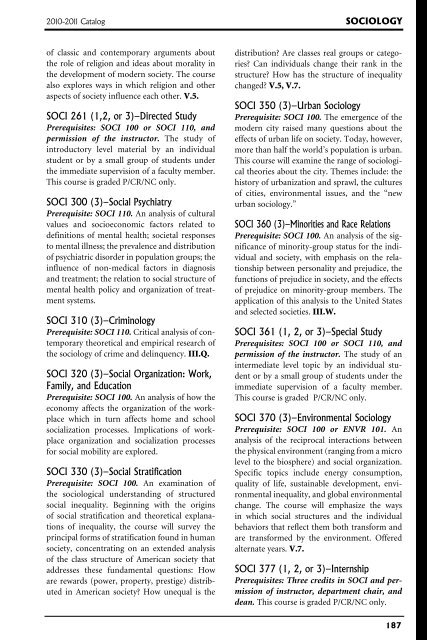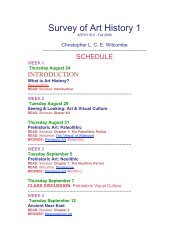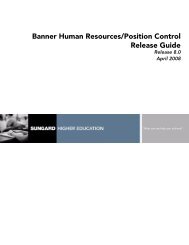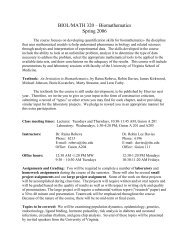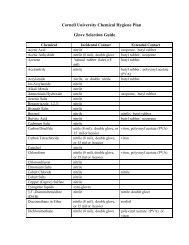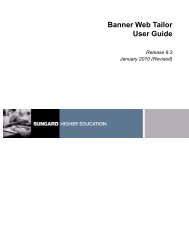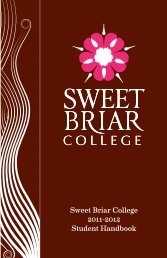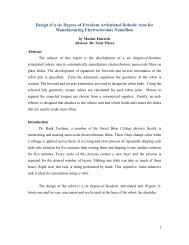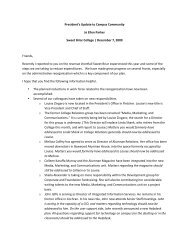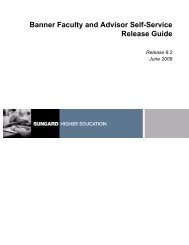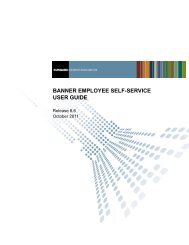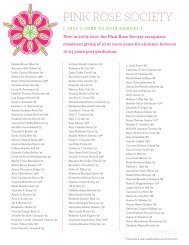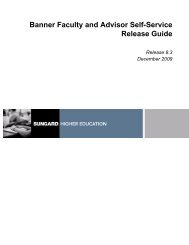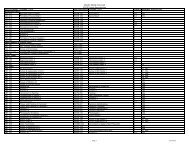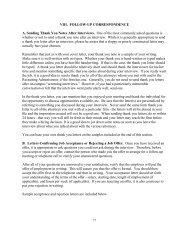2010-2011 - Sweet Briar College
2010-2011 - Sweet Briar College
2010-2011 - Sweet Briar College
- No tags were found...
Create successful ePaper yourself
Turn your PDF publications into a flip-book with our unique Google optimized e-Paper software.
<strong>2010</strong>-<strong>2011</strong> Catalog sociologyof classic and contemporary arguments aboutthe role of religion and ideas about morality inthe development of modern society. The coursealso explores ways in which religion and otheraspects of society influence each other. V.5.SOCI 261 (1,2, or 3)–Directed StudyPrerequisites: SOCI 100 or SOCI 110, andpermission of the instructor. The study ofintroductory level material by an individualstudent or by a small group of students underthe immediate supervision of a faculty member.This course is graded P/CR/NC only.SOCI 300 (3)–Social PsychiatryPrerequisite: SOCI 110. An analysis of culturalvalues and socioeconomic factors related todefinitions of mental health; societal responsesto mental illness; the prevalence and distributionof psychiatric disorder in population groups; theinfluence of non-medical factors in diagnosisand treatment; the relation to social structure ofmental health policy and organization of treatmentsystems.SOCI 310 (3)–CriminologyPrerequisite: SOCI 110. Critical analysis of contemporarytheoretical and empirical research ofthe sociology of crime and delinquency. III.Q.SOCI 320 (3)–Social Organization: Work,Family, and EducationPrerequisite: SOCI 100. An analysis of how theeconomy affects the organization of the workplacewhich in turn affects home and schoolsocialization processes. Implications of workplaceorganization and socialization processesfor social mobility are explored.SOCI 330 (3)–Social StratificationPrerequisite: SOCI 100. An examination ofthe sociological understanding of structuredsocial inequality. Beginning with the originsof social stratification and theoretical explanationsof inequality, the course will survey theprincipal forms of stratification found in humansociety, concentrating on an extended analysisof the class structure of American society thataddresses these fundamental questions: Howare rewards (power, property, prestige) distributedin American society? How unequal is thedistribution? Are classes real groups or categories?Can individuals change their rank in thestructure? How has the structure of inequalitychanged? V.5, V.7.SOCI 350 (3)–Urban SociologyPrerequisite: SOCI 100. The emergence of themodern city raised many questions about theeffects of urban life on society. Today, however,more than half the world’s population is urban.This course will examine the range of sociologicaltheories about the city. Themes include: thehistory of urbanization and sprawl, the culturesof cities, environmental issues, and the “newurban sociology.”SOCI 360 (3)–Minorities and Race RelationsPrerequisite: SOCI 100. An analysis of the significanceof minority-group status for the individualand society, with emphasis on the relationshipbetween personality and prejudice, thefunctions of prejudice in society, and the effectsof prejudice on minority-group members. Theapplication of this analysis to the United Statesand selected societies. III.W.SOCI 361 (1, 2, or 3)–Special StudyPrerequisites: SOCI 100 or SOCI 110, andpermission of the instructor. The study of anintermediate level topic by an individual studentor by a small group of students under theimmediate supervision of a faculty member.This course is graded P/CR/NC only.SOCI 370 (3)–Environmental SociologyPrerequisite: SOCI 100 or ENVR 101. Ananalysis of the reciprocal interactions betweenthe physical environment (ranging from a microlevel to the biosphere) and social organization.Specific topics include energy consumption,quality of life, sustainable development, environmentalinequality, and global environmentalchange. The course will emphasize the waysin which social structures and the individualbehaviors that reflect them both transform andare transformed by the environment. Offeredalternate years. V.7.SOCI 377 (1, 2, or 3)–InternshipPrerequisites: Three credits in SOCI and permissionof instructor, department chair, anddean. This course is graded P/CR/NC only.187


